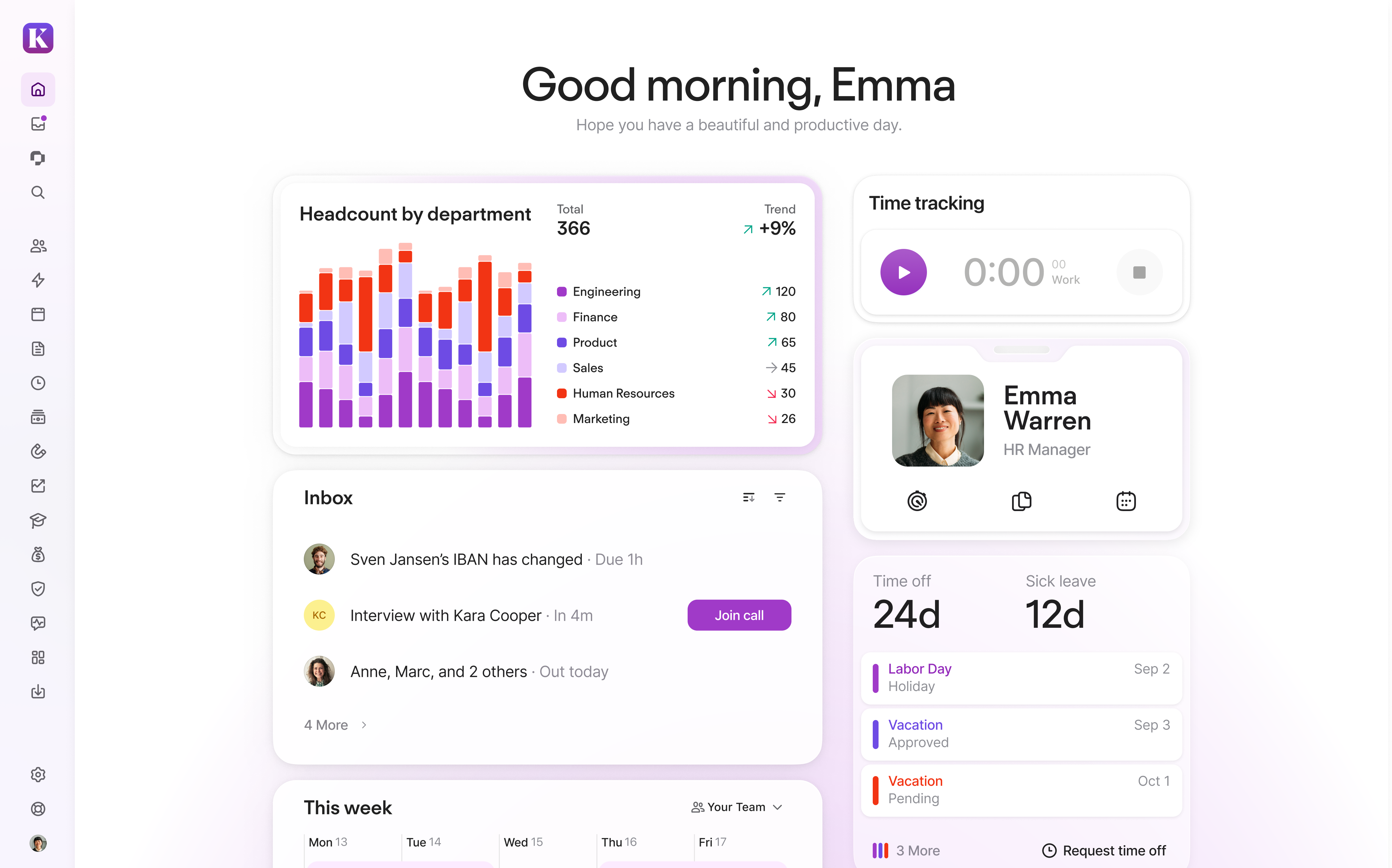
Our weekly HR newsletter
Stay ahead with the latest in HR, delivered straight to your inbox.
Subscribe here28. November 2025
The EU Pay Transparency Directive: What HR Managers and Personio Users Need to Know

From June 2026, HR managers in the EU will be working under a new set of rules that leave little room for ambiguity: the EU Pay Transparency Directive. For organisations with more than 100 employees, this directive introduces mandatory salary range disclosures in every job posting, gives employees the right to request average pay data by gender, and demands regular, detailed reporting on gender pay gaps.
If a pay gap of 5% or more is found in any job category and can’t be objectively justified, employers must act within six months—or face a full pay audit with employee representatives at the table.
Whether you’re already using Personio to manage your HR processes or are just starting to explore solutions, understanding the practical implications of this directive is essential. This post breaks down what the directive means, why it matters, and how you can take concrete steps to prepare—no matter where you are on your compliance journey.
Why this directive matters—and why now
Let’s start with some numbers: In 2023, the average gender pay gap across the EU was 12%. But the gap varies widely—Austria sits at 18.3%, Germany at 17.6%, the Netherlands at 12.5%, France at 12.2%, and Spain at 9.2%. Even Italy, with a much lower gap, isn’t immune to the need for transparency.
In Germany, women earned 16% less per hour than men in 2024.
The EU Pay Transparency Directive tackles these persistent gaps head-on. For companies with 50+ employees, the directive means a new standard: salary ranges must be shared with every applicant, employees must have access to pay insights, and companies must report on gender pay gaps. If a gap of 5% or more exists in any job category without objective justification, employers have just six months to close it—or face a comprehensive pay audit.
“Equal work deserves equal pay. And equal pay requires transparency. Women need to know whether their employers are treating them fairly. And if that is not the case, they must have the opportunity to defend themselves and get what they are entitled to.“

Ursula von der Leyen
President of the European Commission
What does this mean for HR and people teams?
Here’s what organisations—both current Personio users and those considering a new HR solution—need to prepare for:
Salary Transparency: Every job posting must clearly state the salary range. Asking about salary history is prohibited, and every applicant can request pay information.
Employee Rights: Employees can request the average pay for colleagues in similar roles, broken down by gender. Employers must respond promptly and accurately—while protecting personal data.
Reporting and Audits: Companies with 100+ employees must produce auditable gender pay gap reports. If discrepancies are found, swift action is required.
Objective Pay Structures: Employers need to define and document how pay is linked to skills, competencies, and progression. This isn’t just about fairness—it’s about being able to prove it, if asked.
Why bother? Transparency has way more benefits than just compliance
The benefits go well beyond compliance. Companies that embrace pay transparency are up to 21% more likely to be highly profitable. Closing the gender pay gap could add up to €280 billion to EU GDP by 2030—and $12 trillion globally. Plus, organizations that lead on transparency see stronger interest from top talent and improved retention, with turnover costs ranging from 90–200% of annual salary.
Beyond those broader business outcomes, HR departments gain immediate, practical advantages. Clear salary structures streamline individual negotiations and provide objective frameworks that make conversations with managers and employees easier. The data work required by the directive improves overall HR data quality—creating a stronger foundation for workforce planning, budgeting, and strategic decisions. HR teams that master pay analysis position themselves as strategic partners to leadership, not just policy enforcers. And the recruiting wins are instant: salary ranges in job postings attract better-fit candidates and measurably speed up hiring.
How Personio can help (and where to go next)
Personio is designed to make compliance less daunting and more automated. From managing job postings and salary bands to providing audit-ready documentation and real-time pay analytics, our software solution helps HR teams turn legal requirements into simple workflows.
To help you navigate these new requirements with confidence, we’ve developed a comprehensive compliance guide tailored to your needs. Our guide breaks down the essentials of the directive and offers a clear roadmap for building transparent, future-ready HR processes.

Vivecca Frank
Vivecca Frank is an Associate Product Marketing Manager at Personio, focusing on core features such as time tracking, absences, salaries, and the mobile app. With over ten years in marketing and more than six years in SaaS, she works at the intersection of product development and customer needs—helping ensure that Personio’s tools are practical and genuinely support everyday work.

